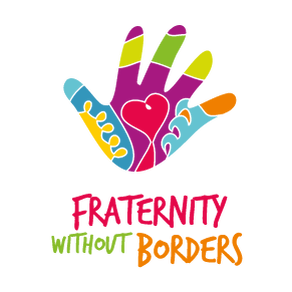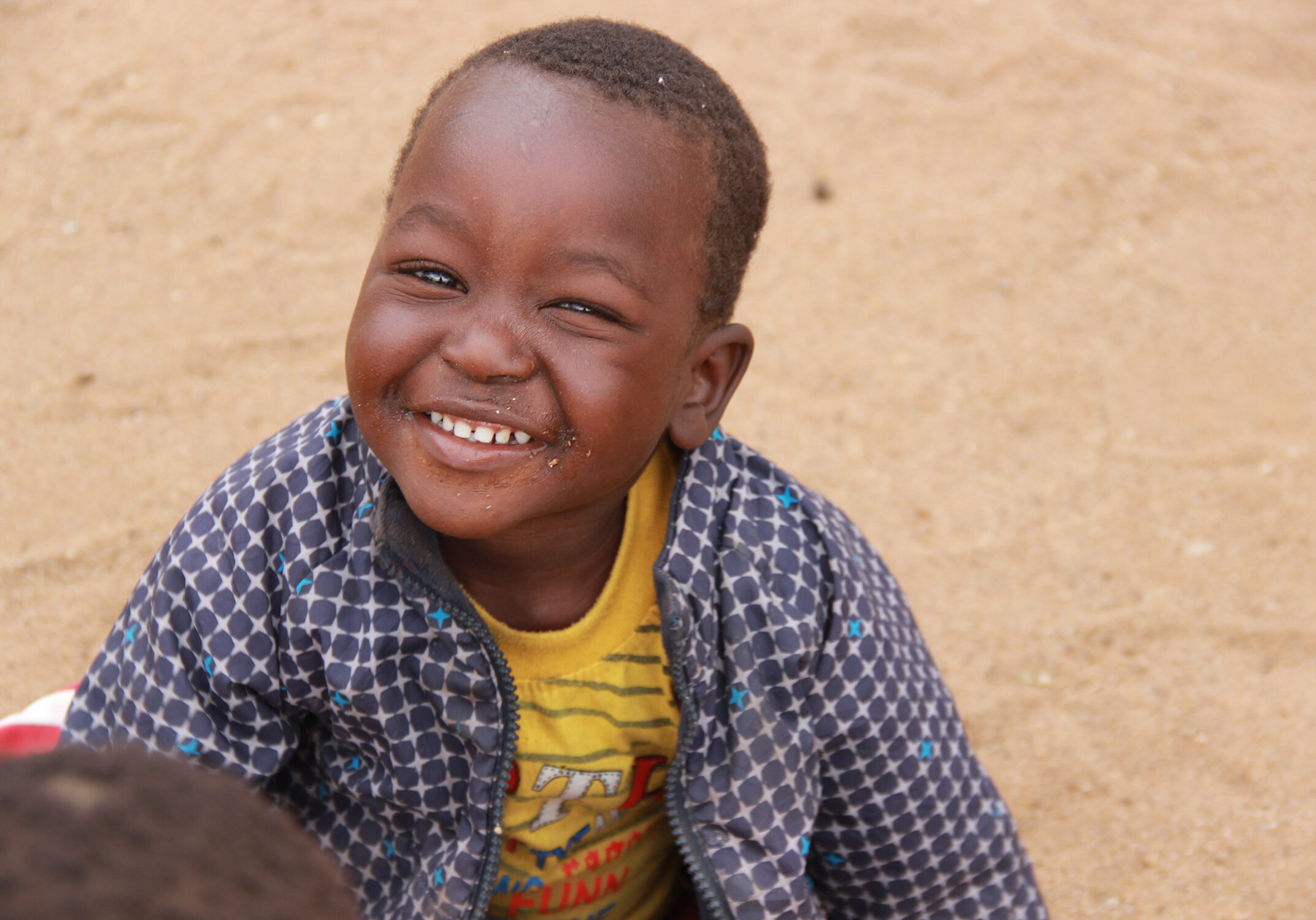
THE REALITY
When volunteers visited Madagascar for the 1st time, they found families living in extreme poverty, suffering from hunger and thirst. Without access to water, children used to bathe only when it rained. Living during the greatest pandemic of our generation, the situation in Madagascar is urgent, and thousands of children are at risk of severe malnutrition. The need for food and medical treatment has increased, and the demand has never been higher. Malnutrition has been at alarming levels since June/20. Located on the island of Madagascar, the project Act Madagascar is based on the south of the island, having Ambovombe as the central city for location reference. In small villages around this city, families live in extreme poverty, suffering from hunger and thirst. The focus of the FWB-CA project, Madagascar Action, is to help these families.
ACT MADAGASCAR PROJECT
Fraternal hearts have come together to change the reality of Madagascar families. Fraternity Without Borders Canada is embracing the support to the community centers which give the Madagascar people access to food, water, medical help, and more. Our goal is to be part of the development of the supported location respecting local traditions, culture, and religious beliefs. Each initiative will aim to provide additional support to the community. You are welcome to join all the causes that touch your heart. As the number of donors grows, we intend to continue helping the community by extending support to their families, not only with food but also with education, shelter, and professional development.
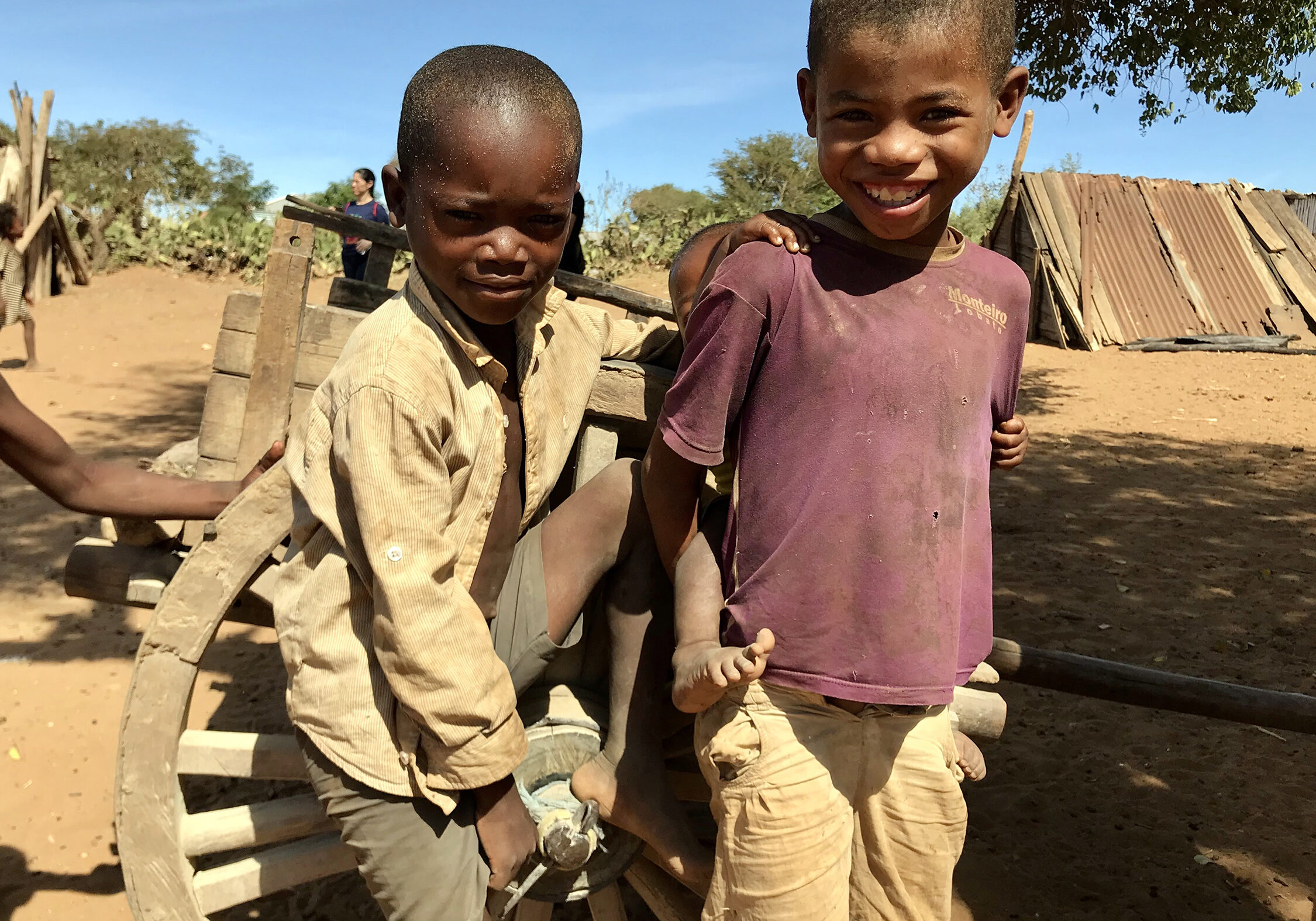
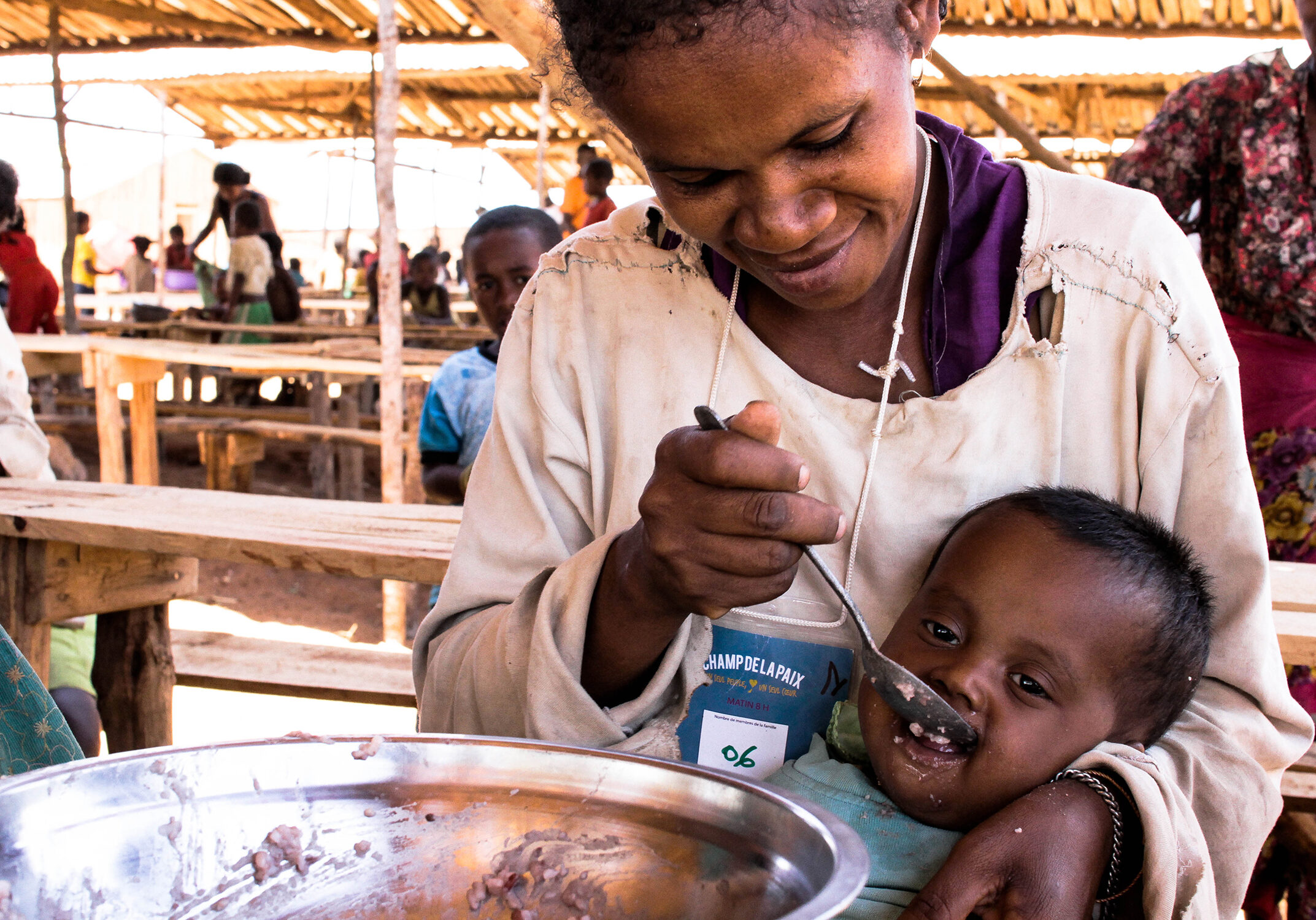
NUTRITION CENTERS INITIATIVE
Much of the South of the Island population has severe malnutrition, which presents itself in skeletal form or swelling due to infections. Urgent treatment with nutritional formulas is required until they can resume normal eating. Our goal is to provide food for the children in the communities supported by the project Act Madagascar; there are currently over 300 children. With only $20.00 per month, you can transform a child’s life by providing much more than food. Through your contribution, it is possible to give them dignity and the chance to dream of a better future. Your monthly contribution will enable us to:
- Contribute to the five meals per week per child according to the nutritionists’ prescription necessary to treat severe malnutrition, which includes, but is not limited to, rice, beans, and nutritional formulas before the meals according to the malnutrition severity of the child.
- We monitor the children’s growth and weight gain to detect nutritional risks and intervene before the child becomes malnourished.
WOMEN FROM AFRICA INITIATIVE
Madagascar has the fourth worst water sanitation and hygiene conditions globally, with 94.0% lacking essential sanitation services (UNICEF, 2018). To manage their cycles, women and girls often use unhygienic, inconvenient, and undignified methods of period care, such as banana leaves and newspapers. Furthermore, research has documented menstruating girls’ experiences of shame, fear, and confusion across numerous country contexts. This initiative aims to increase community engagement and understanding of best practices for menstrual hygiene. This program can spur a cultural shift rooted in supporting school-aged girls throughout their menstruation cycles. This support will give them the confidence needed to seek further education and the management practices best suited to them as individuals.
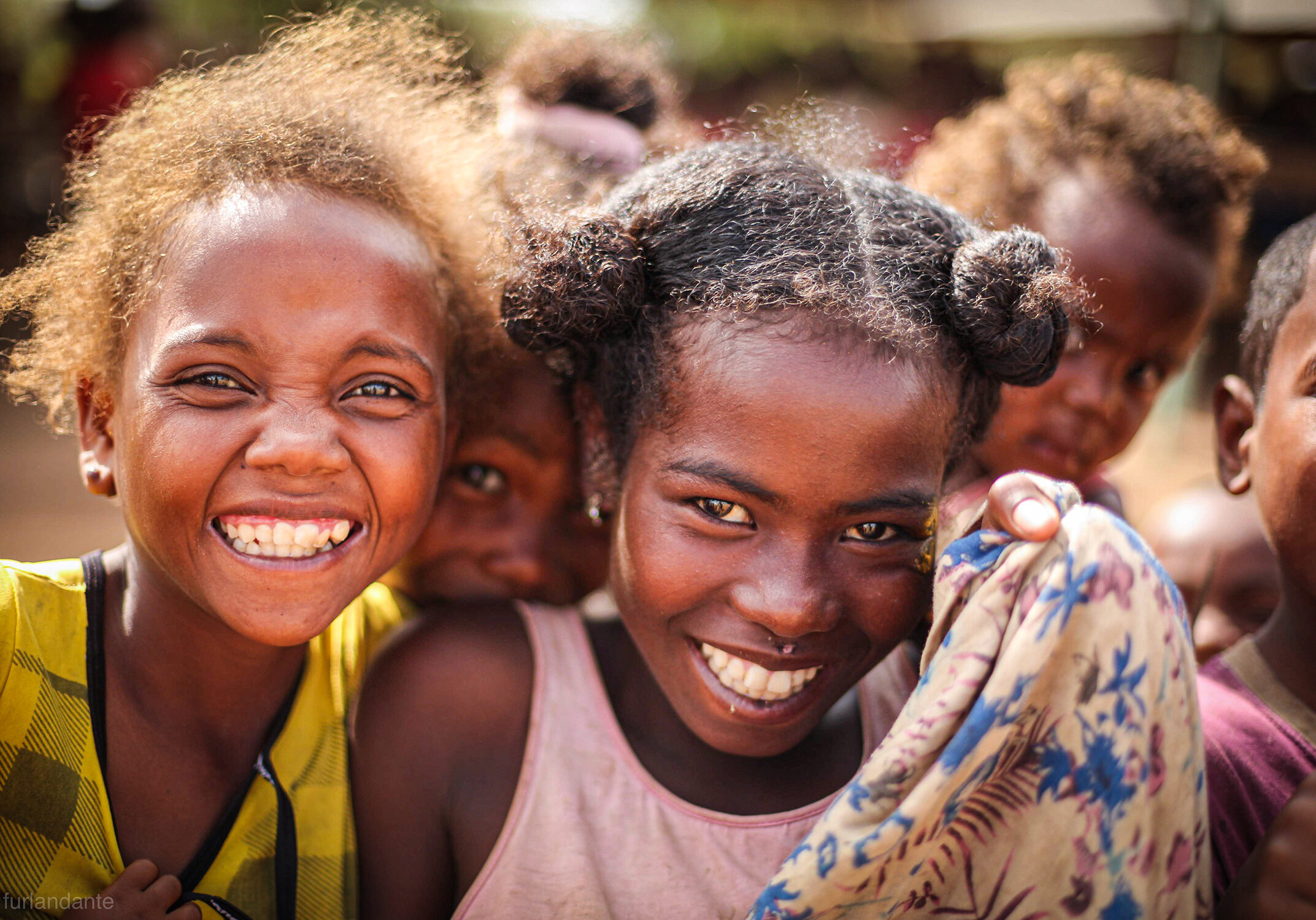
OUR HISTORY
Fraternity Without Borders: Brazil arrived on the island of Madagascar in February 2017 and found families living in extreme poverty, suffering from hunger and thirst, without a minimum of hygiene conditions. Without access to water, children bathe only when it rains, and half of them have acute malnutrition. The families live in very precarious houses, and the lack of hygiene and severe malnutrition leads to diseases such as taeniasis, neurocysticercosis, and foot worm, among others.
Among other FWB chapters, we host approximately 16 thousand brothers and sisters in our 13 Reception Centers, where we work to offer food, hygiene care, recreation and cultural activities, training for work, sewing, agroforestry, biochar, soap, handicraft, rust, and ecological bricks workshops. We have also implemented a bakery to produce bread for consumption by the local community and to provide income generation for the welcome involved in the production. We opened two reception centers in the city of Ambovombe. In the first, where the FWB’s headquarters in Madagascar is also located, we take in the little children living on the streets, begging for crumbs. They receive meals and hygiene care and participate in recreational and cultural activities. None of the children welcomed had attended school. We made folders, bought school supplies and uniforms, and enrolled 357 children. None of the welcomed children had attended school. We created folders, bought school materials and uniforms, and enrolled 357 children.
The inauguration of the new Field of Peace in Madagascar expanded the services provided by the Medical Clinic. We now have two pavilions, which house 16 rooms and 24 regular hospital beds. The place also has a sink for sanitation, gynecological tables and stretchers, and a vaccination room. Besides the Medical Clinic, the Field of Peace has an enormous dining hall equipped to serve more than four thousand meals daily. The space was planned to accommodate up to 800 people simultaneously. And bathing, so rare in Madagascar, is even more accessible – 40 showers are working at the same time. Every detail impacts the daily lives of thousands of families.
A hundred families that used to live in absolutely precarious little houses are now living in the City of Fraternity. In a donated area of 45 thousand square meters, the project includes one hundred houses, drilling an artesian well, workshops for work and sustainable cultivation. The community is encouraged to realize its self-esteem capacity and experience values that cultivate peace.
